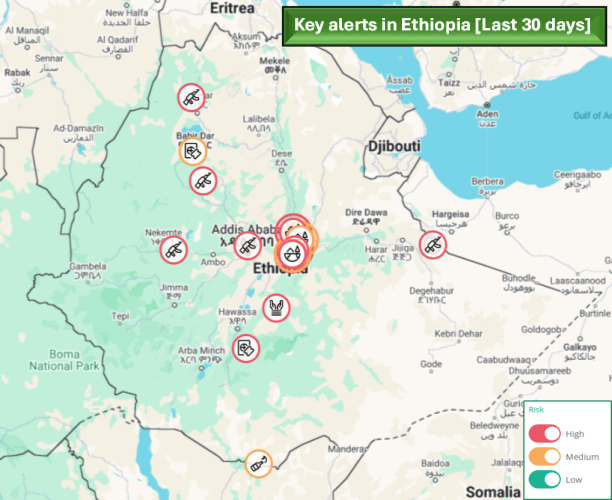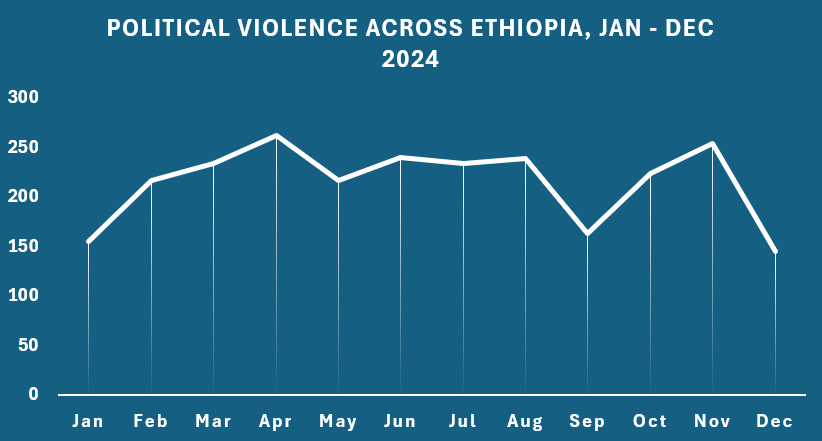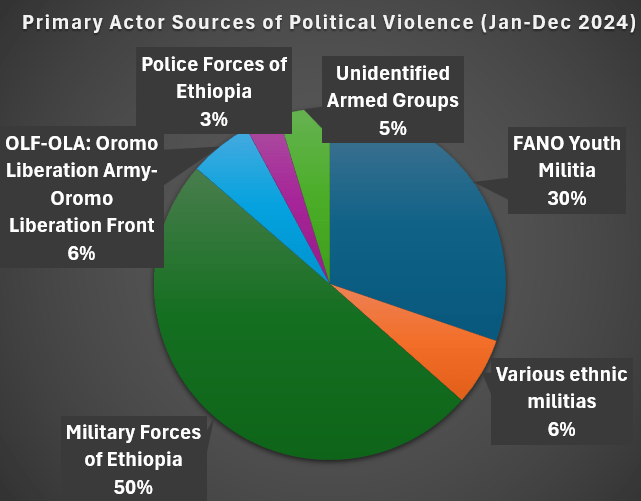
Eigenrac Regional Intelligence Reporting and Analysis
Security Insights – Ethiopia Jan – Dec 2024
KEY DEVELOPMENTS IN ETHIOPIA THIS WEEK
Somalia and Ethiopia to renew diplomatic relations: Somalia and Ethiopia have agreed to restore diplomatic ties following a period of tension over Ethiopia’s memorandum of understanding with Somaliland. The breakthrough came after Somali President Hassan Sheikh Mohamud’s visit to Addis Ababa and discussions with Ethiopian Prime Minister Abiy Ahmed, during which both leaders pledged to reestablish ambassadors and consular representation. Turkey played a significant mediating role through the Ankara Declaration. This reconciliation also paved the way for resolving Ethiopia’s participation in the African Union Transition Mission in Somalia (AUSSOM), with technical details set to be finalized during a Somali delegation’s visit to Ethiopia on January 15.
Seismo-volcanic crisis in Ethiopia displaces thousands and damages infrastructure: As of January 13, 2025, Ethiopia’s ongoing seismo-volcanic crisis in the southern Afar and northern Oromia regions has injured two people, displaced over 60,000 residents, and caused widespread damage since it began on December 22, 2024.

Risk Categories
Conflict: High Crime: Medium Health and Medical: High Kidnap and Ransom: Medium Unrest: Medium Personal Safety: Medium Natural and Environment: Medium/High Political Overview: Medium Terrorism: High
Centered near the Fentale and Dofan volcanoes in the Main Ethiopian Rift, the crisis has produced 124 earthquakes ranging from magnitude 4.1 to 5.7, large ground fissures, and vent activity at Dofan volcano. Damage includes submerged valleys, fractured infrastructure, inoperable water pumps, and concerns over the Kesem/Sabure Dam, raising the potential for catastrophic flooding. Structural vulnerabilities in buildings have exacerbated the crisis, with significant damage to homes, schools, and healthcare centers, posing additional challenges as evacuation and relief efforts continue.
Ethiopian government forces accused of killing two brothers in Amhara region: Ethiopian government forces are accused of shooting and killing two brothers, who were reportedly working on their farm near Azezo, Gondar, in the Amhara region. The victims were allegedly targeted due to their supposed support for Fano forces, according to local sources. This incident, which occurred on Friday, marks another case of extrajudicial killings in the region amid ongoing military operations that began in August 2023. Human rights organizations have confirmed multiple reports of such killings in the area.


The restoration of diplomatic ties between Ethiopia and Somalia holds significant medium-term implications for the region’s security and political landscape. Likely to enhance bilateral cooperation, the normalization of relations could result in improved coordination on regional security, particularly in addressing common threats like Al-Shabaab, IS-S and border security issues. The move may also signal greater economic collaboration, fostering trade and investment that benefits both nations. However, while the restoration is a positive step, it is also realistic to expect lingering tensions surrounding Ethiopia’s relationship with Somaliland, which could disrupt stability in border areas and complicate full cooperation. In the long term, continued diplomatic engagement between the two could help mitigate these tensions, but the broader stability of both countries will depend on their ability to balance competing regional interests and manage domestic security challenges.
Last month, the Oromo Liberation Army (OLA) reportedly launched a new and more sophisticated offensive operation targeting security forces and government officials across Oromia, which has materialized with heightened rates of armed clashes and attacks in the region, while increasing the risk of attacks in proximity to Addis Ababa in the near term. This development raises concerns about further escalations in violence, including attacks on civilians, which could destabilize the region further. However, it remains to be seen whether OLA can maintain this momentum. Given the OLA’s history of insurgent activities and the government’s ongoing military operations, the situation remains fluid and warrants close monitoring.
The ongoing violence, including extrajudicial killings and attacks on civilians, signals the realistic possibility of increasing instability in the country. With government forces, armed factions and communal/ethnic militias engaged in airstrikes, armed clashes, and abductions, as well as high rates of sexual violence, the likelihood of further human rights abuses remains high, deepening humanitarian concerns, especially in Amhara and Tigray. In the medium term, this could provoke international pressure and possible sanctions, while continuing violence may spur increased local resistance and insurgent activity. In the long term, unresolved human rights issues will likely lead to protracted conflict, hindering Ethiopia’s political and economic recovery.